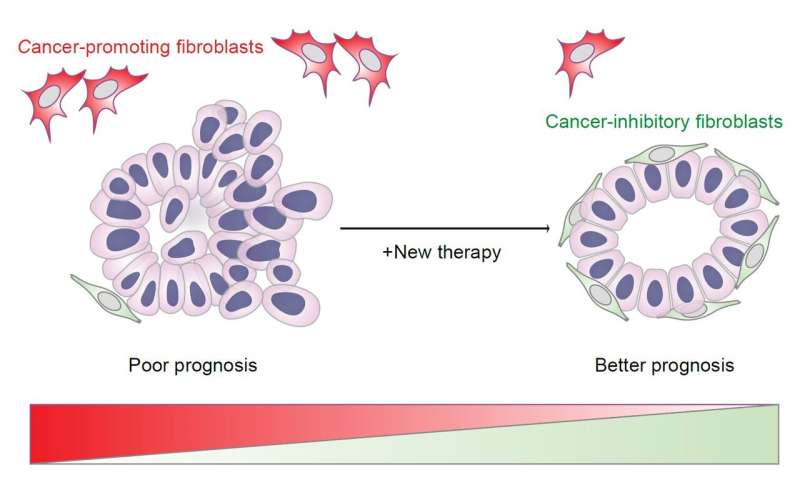New therapy to target the spread of bowel cancer

For the first time, SAHMRI and University of Adelaide researchers are investigating gene therapy as an option to help people with metastatic bowel cancer.
Like most cancers, bowel cancer is surrounded by many normal cells that are corrupted to support cancer growth. Dr. Susan Woods, A/Prof Daniel Worthley and their team have been studying why some of these supportive cells (fibroblasts) assist cancer growth, while others actively work to stop it.
“In bowel cancer, we know that patients with the poorest prognosis have a lot of these corrupted or bad tumour supporting fibroblasts,” Dr. Woods said.
“Bad fibroblasts can promote abnormal growth of the tumour cells, while the good fibroblasts slow tumour growth and reduce tumour spread.”
The groups latest research study published in Gastroenterology, shows how cancers corrupt fibroblasts to support their growth and that virally-delivered gene therapy is able to reproduce good fibroblast signals within the tumour environment.
Dr. Hiroki Kobayashi, a key member of the team, generated a new gene therapy to deliver good fibroblast signals directly to the supporting cells.
“Most bowel cancers metastasise to the liver. In our preclinical models, the treatment works by injecting a virus that exclusively targets the liver. This generates more of the good cancer support cell signals in that organ, shrinking the tumour and ultimately extending lifespan,” Dr. Kobayashi said.
This sort of gene therapy has been used to treat blood disease in humans, but never in cancer.
Source: Read Full Article



